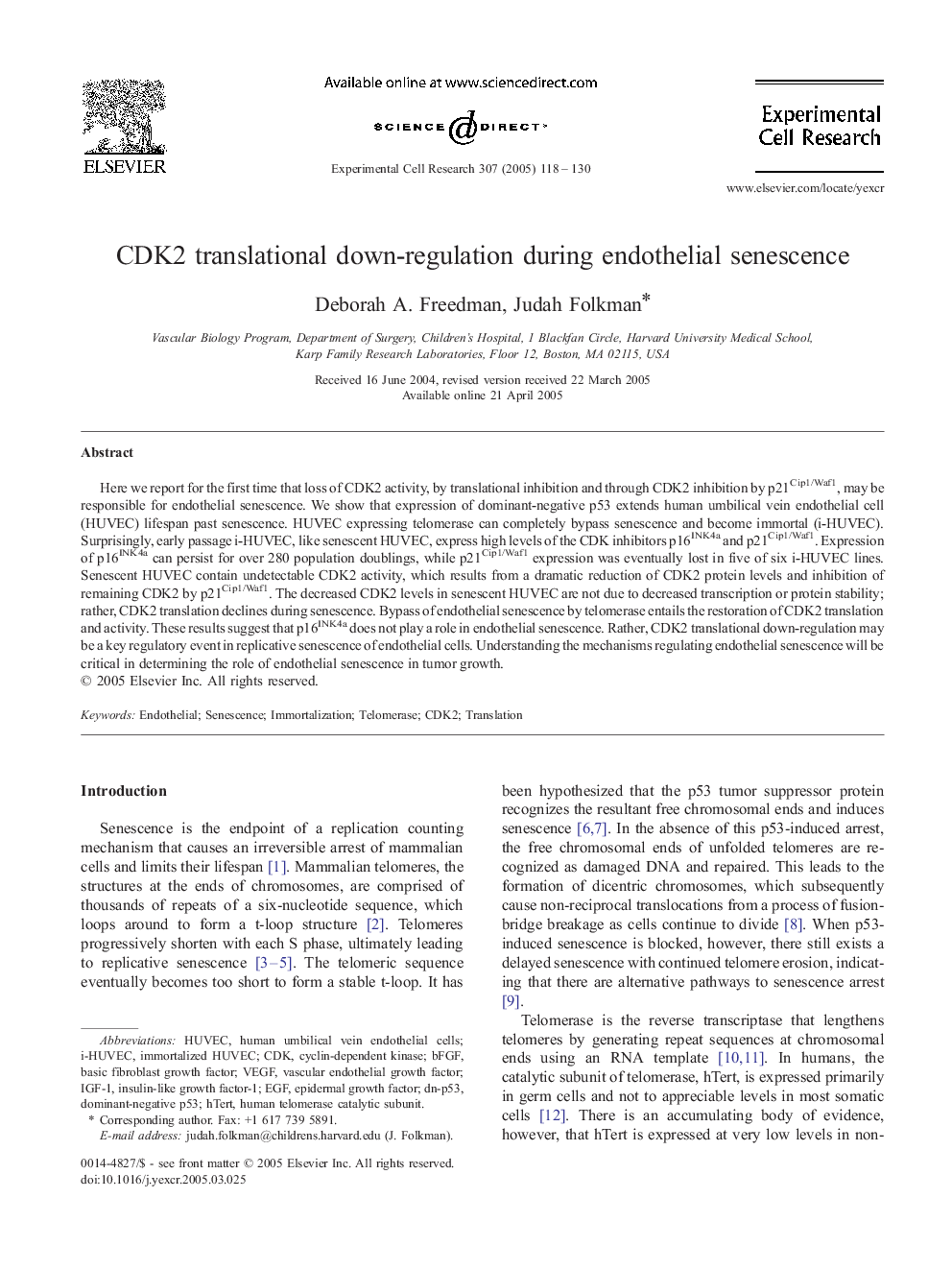| Article ID | Journal | Published Year | Pages | File Type |
|---|---|---|---|---|
| 10905197 | Experimental Cell Research | 2005 | 13 Pages |
Abstract
Here we report for the first time that loss of CDK2 activity, by translational inhibition and through CDK2 inhibition by p21Cip1/Waf1, may be responsible for endothelial senescence. We show that expression of dominant-negative p53 extends human umbilical vein endothelial cell (HUVEC) lifespan past senescence. HUVEC expressing telomerase can completely bypass senescence and become immortal (i-HUVEC). Surprisingly, early passage i-HUVEC, like senescent HUVEC, express high levels of the CDK inhibitors p16INK4a and p21Cip1/Waf1. Expression of p16INK4a can persist for over 280 population doublings, while p21Cip1/Waf1 expression was eventually lost in five of six i-HUVEC lines. Senescent HUVEC contain undetectable CDK2 activity, which results from a dramatic reduction of CDK2 protein levels and inhibition of remaining CDK2 by p21Cip1/Waf1. The decreased CDK2 levels in senescent HUVEC are not due to decreased transcription or protein stability; rather, CDK2 translation declines during senescence. Bypass of endothelial senescence by telomerase entails the restoration of CDK2 translation and activity. These results suggest that p16INK4a does not play a role in endothelial senescence. Rather, CDK2 translational down-regulation may be a key regulatory event in replicative senescence of endothelial cells. Understanding the mechanisms regulating endothelial senescence will be critical in determining the role of endothelial senescence in tumor growth.
Keywords
EGFCDK2bFGFCDKHUVECIGF-1hTERTEndothelialinsulin-like growth factor-1TranslationTelomeraseImmortalizationHuman umbilical vein endothelial cellsepidermal growth factorVascular endothelial growth factorVascular Endothelial Growth Factor (VEGF)basic fibroblast growth factorSenescencecyclin-dependent kinase
Related Topics
Life Sciences
Biochemistry, Genetics and Molecular Biology
Cancer Research
Authors
Deborah A. Freedman, Judah Folkman,
